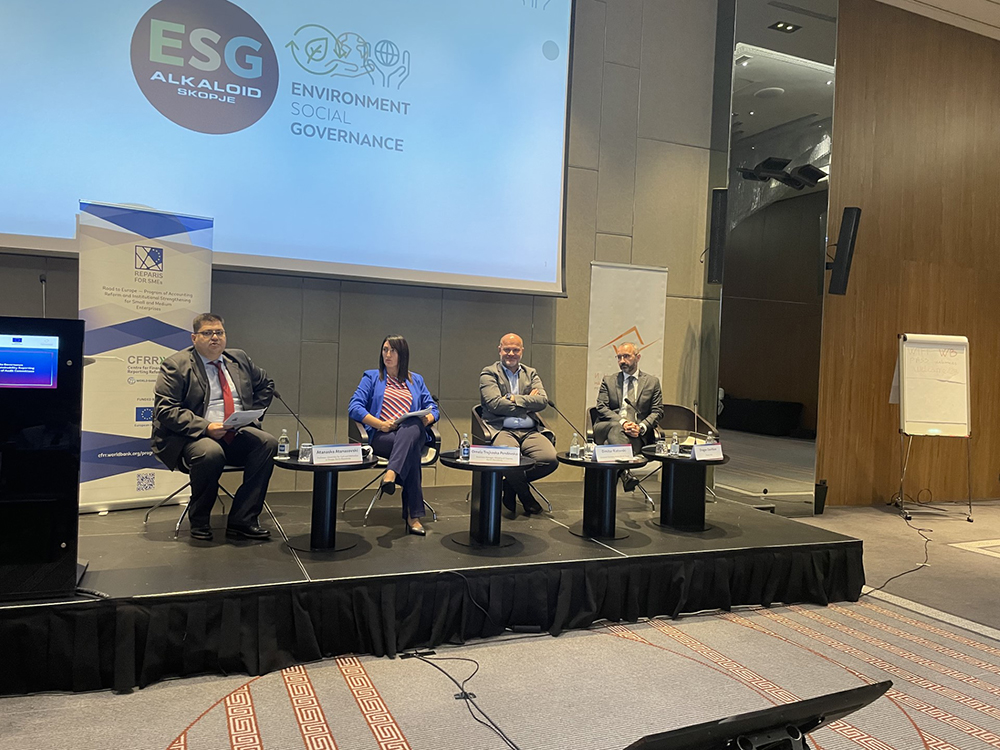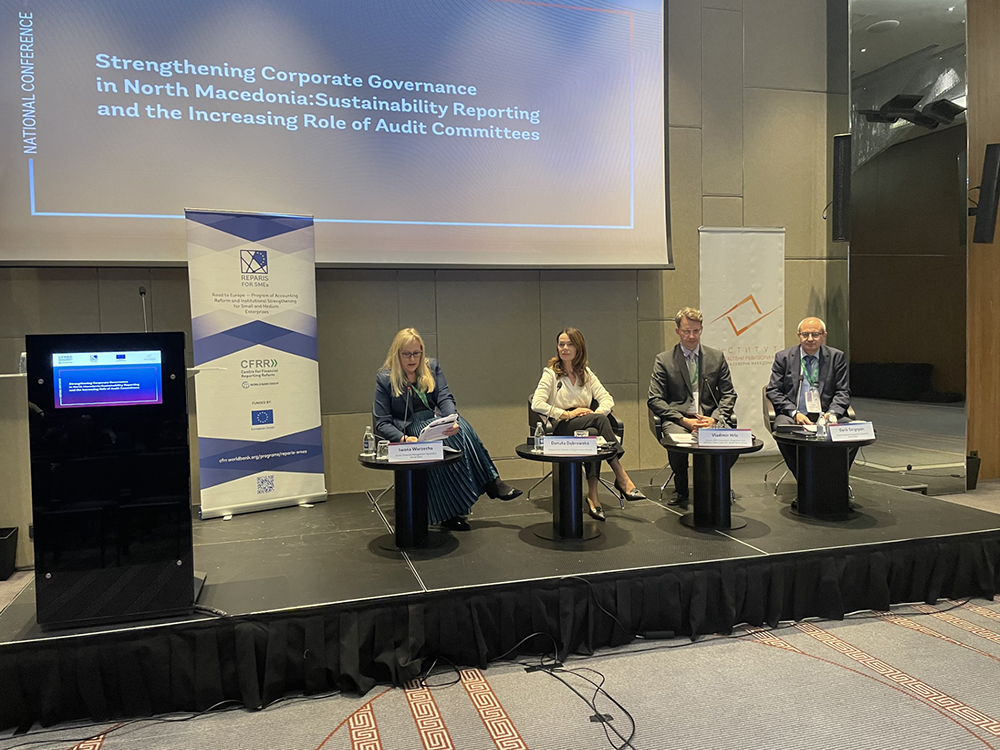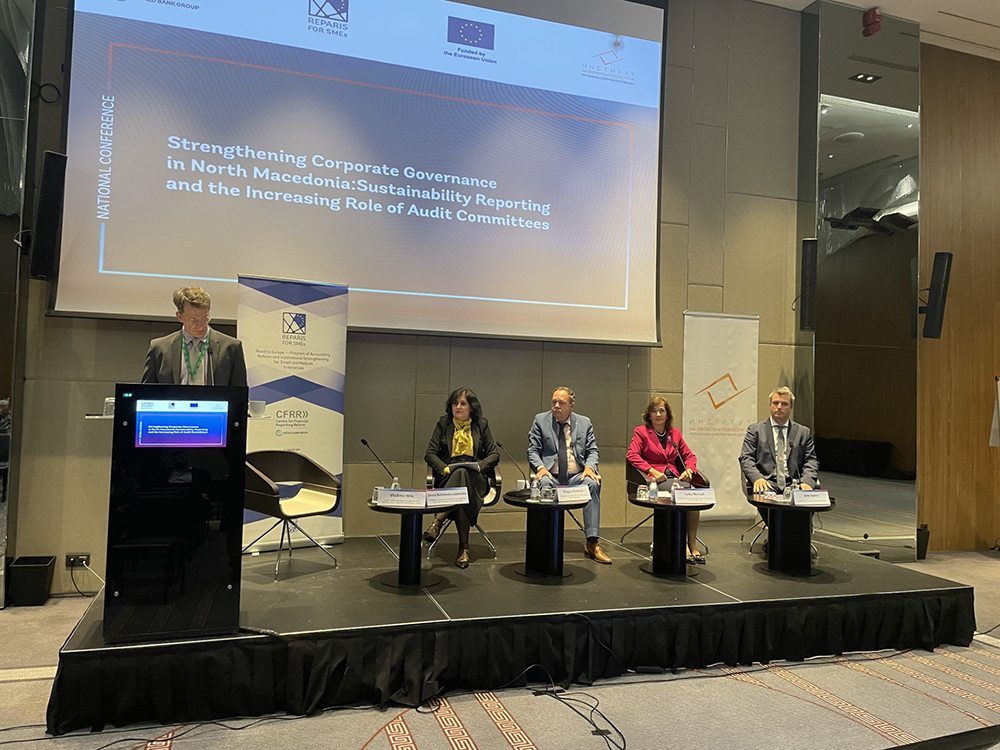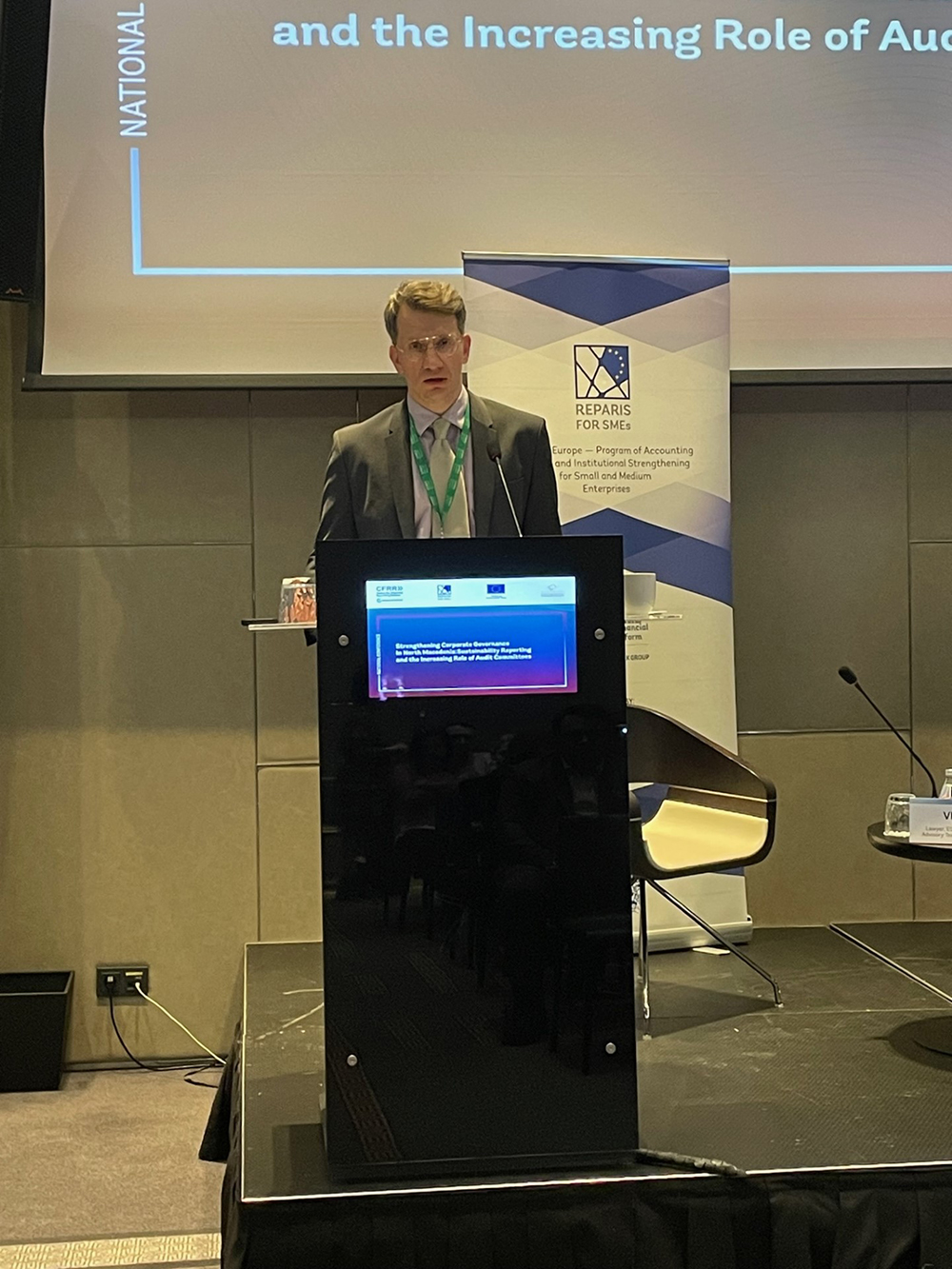The third national conference under the Road to Europe Program of Accounting Reform and Institutional Strengthening for Small and Medium Enterprises (REPARIS for SMEs) regional project was held on November 09, 2023, in Skopje, North Macedonia.
The conference raised awareness of the pressing issue of sustainability, particularly in relation to environmental, social and governance concerns. Sustainability reporting has emerged as a crucial tool to redirect capital towards sustainable investments, foster transparency, manage financial risks associated with climate change and resource depletion, and promote long-termism in financial and economic activities in line with the World Bank's vision of creating world free of poverty on a livable planet.
Organized in collaboration with the Institute of Certified Auditors of the Republic of North Macedonia, the conference attracted over 140 participants, including public officials, EU delegation representatives, certified auditors, professional accountants, board members, audit committee members of public interest entities and large state-owned enterprises, representatives from business associations, banking and insurance regulators, internal auditors, and academia.
One of the key highlights of the conference was the exploration of the European Union (EU) Corporate Sustainability Reporting Directive (CSRD) and the European Sustainability Reporting Standards. Local experts engaged in a panel discussion, representing various perspectives such as the Ministry of Finance, the audit profession, large companies, and academia. The urgent need to accelerate the adoption of legal provisions requiring large companies in North Macedonia to prepare non-financial statements was emphasized.
The conference heard that local authorities will consider transposing the provisions of CSRD into domestic legislation. However, companies, especially those involved in international value chains, were encouraged to proactively implement the European Standards even before it becomes mandatory in North Macedonia. Building awareness among all stakeholders, including companies, investors, regulators, non-governmental organizations, employees, labor unions, customers, consumers, local communities, and industry associations, was deemed crucial for successful implementation.
Implementing sustainability reporting requirements not only demands new skills but also necessitates the establishment of new structures, processes, and active involvement of management boards and audit committees within companies, which presents its own set of challenges. Timely updating of university and professional curricula to include these new requirements is essential to ensure adequate professional competences within the accounting and auditing profession.
The conference also emphasized the vital role of the audit committee in ensuring accurate reporting and the assurance provided by auditors in both financial and sustainability reporting. Participants gained practical insights from a professional chair/member of audit committees from Poland on key tasks of audit committees including the selection process of independent external auditors, communication with auditors, a typical work calendar of audit committee, and monitoring of the reporting process and risk management system. The session highlighted the importance of well-functioning internal audit for an effective audit committee. A key takeaway was to encourage the integration of sustainability and the environmental, social and governance (ESG) agenda and risks into a harmonized business strategy, companies should avoid separating sustainability and business strategies.
There was useful discussion of maximizing the role of audit committees. Currently in North Macedonia, they are only fully functional in companies with sound board structures, predominantly joint stock companies. It was suggested that audit committees need to be fully institutionalized in all types of companies. Competence and independence were identified as key for proper functioning of the audit committee. It would be useful to have database or a pool of potential audit committee members with appropriate competence and integrity. A panel of local experts discussed areas where audit committee members could enhance their effectiveness in promoting high-quality and transparent corporate financial and sustainability reporting and auditing. There was wider consideration of the role of audit committees with respect of the new non-financial (sustainability) reporting legal framework that is expected to be adopted in all Western Balkan countries and agreement that this must be well integrated with traditional areas of competence of audit committees.
The conference noted the specific challenges facing functional audit committees in state-owned enterprises (SOEs), especially with respect to their independence and accountability with respect to performance and service delivery. Participants recognized the pivotal role of audit committees in SOEs, especially related to non-financial (sustainability) reporting due to the significant specific environmental and social impacts that need to be managed by large SOEs and those in high-emission sectors.
Overall, participants reported finding the conference to be informative, well-organized, and valuable to their professional endeavors.



